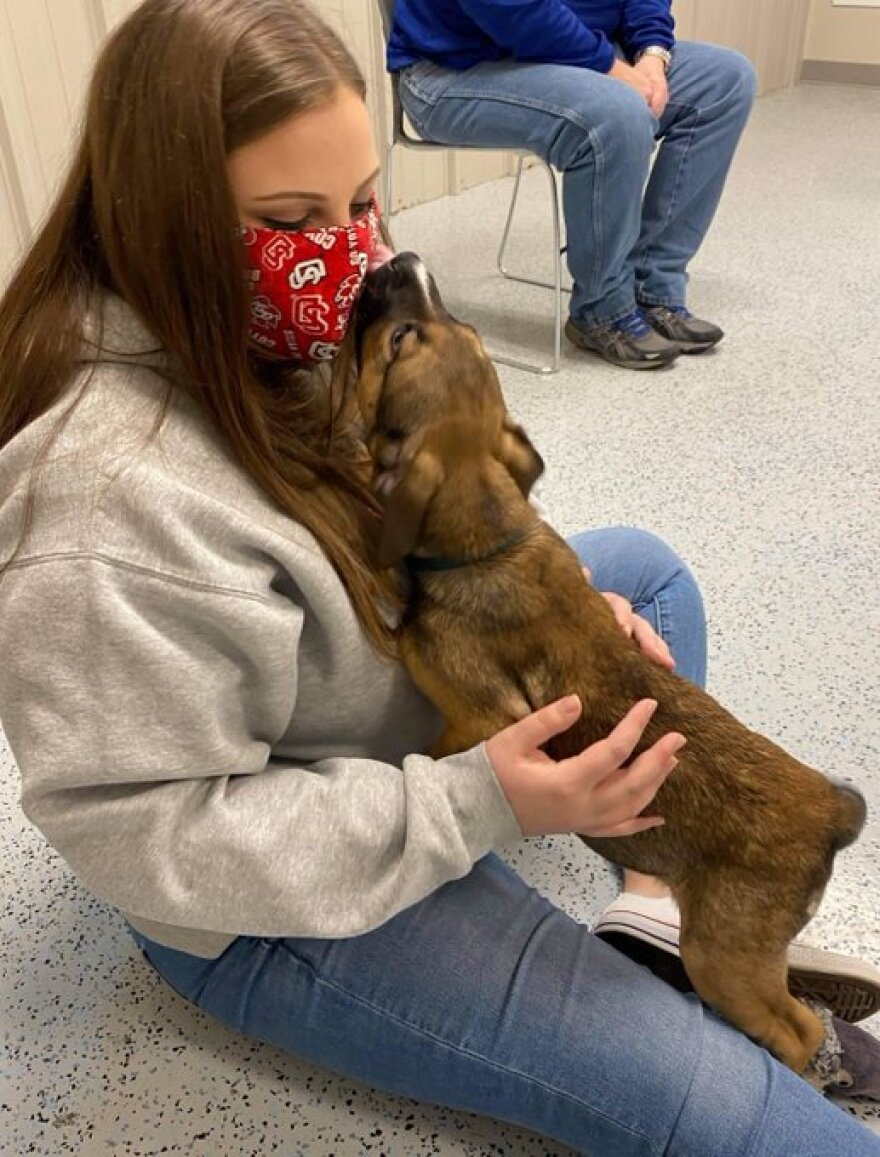Businesses across South Dakota continue to recover from pandemic-related losses, but for some, business has been good.
Pet adoptions are up, and those pandemic dogs and cats turn into profits for some local businesses.
Missy John runs a dog training business, Nerdy K9 Academy in Sioux Falls. She opened in February 2020, one month before the pandemic hit.
“As a brand-new business owner, it was probably a similar type of behavior reaction that some of the dogs had," John said. "I didn't know what I was going to do. What was happening? How am I supposed to get through this?”
Just as she opened for business, John had to shut down. Like other business owners, she wondered how she’d pay the bills, and as a brand-new operation, John worried her dream might be over before it even started. So, she got creative.
John offered virtual training sessions over video links and the phone. She did socially distanced, in-person training outdoors and advertised her services regularly with social media posts. After a shaky first few months, her clientele steadily grew, and it’s still growing. John said people wanted to give back to their furry companions.
“They got the dogs when we were going through a crisis. Dogs provide a great amount of emotional support," she said. "And so that relationship, I think, developed with people pretty intensely. And now it's, 'You got me through a lot of the pandemic junk. We're in this together.'”
Pandemic pets
Research backs John’s observations. A survey of about 4,100 dog owners reports nearly 70% of people said a pet decreased their feelings of loneliness and isolation associated with COVID-19. Four universities collaborated on the study.
But many dogs need more socialization than their owners can provide. Trevor Gunlicks is the Operations Manager at Precious Pets, a grooming salon and doggy daycare in Sioux Falls.
He said 2020 was a good year for business.
“Right around September, October, we saw a dramatic increase in the amount of dogs coming," he said. "Not only for daycare, but also grooming and boarding, but specifically our daycare, it got crazy.”
Gunlicks said unsocialized dogs, especially puppies, can develop behavioral issues. He adds that dogs like routine, and the pandemic changed a lot of people’s day to day lives. Many owners were suddenly working from home, then months later they went back into the office.
Gunlicks said some clients recognized stress in their animals and sought out doggy daycare.
“I mean, daycare is essentially one of the best opportunities to socialize both with people and dogs,” he said.
Gunlicks said their business growth has continued since the fall of 2020 and they average about 40 more dogs per day compared with two years ago. That’s a big increase. Gunlicks doesn’t know for certain how many clients adopted their dogs during the pandemic, but he suspects the percentage is high.
“A lot of the dogs we did get were newer puppies," he said. "I'm myself a COVID dog owner because I got mine last year.”
Most adoptions successful
In fact, according to the American Society for the Prevention of Cruelty to Animals (ASPCA), 23 million households got a new pet during the pandemic.
Jerry Steinley is the executive director of the Black Hills Humane Society and said the first few months of the pandemic were unlike anything he’s ever seen.
“At one point early on, we had, I think we had two dogs in the house," he said. "Which, if you've ever been in the shelter, you know how busy it is, you know, that's completely out of character. I mean, it's so unusual to have only two dogs.”
Steinley added that while adoption rates shot up at the start of the pandemic, they returned to normal after 3-4 months.
“The numbers are what the numbers are. And I think they're going to trend either level, or they're going to go up because our area is growing so much," Steinley said. "So, we expect to see quite a bit more animals in the coming years.”
So far, Steinley said they have not really seen pets adopted during the pandemic being returned to the shelter in large numbers.
And data provided by the ASPCA backs that up. Nationally, the cruelty prevention society estimates 90 percent of dogs and 85 percent of cats adopted during the pandemic are still in their homes. The ASPCA said alarmist headlines reporting returns of animals are not what they’re seeing.
Mikala Fjerstad adopted her dog Milo in the fall of 2020. She felt lonely and isolated, and she had wanted to adopt a dog for a while. Fjerstad thinks the pandemic pushed her to take the leap.
“It really sounds kind of cheesy, but he gave me a purpose. Now, I was responsible for his training, his recovering health and showing him love that he really hadn't been exposed to before," she said. "He became my best friend so quickly, and we formed a special bond that will last far longer than this pandemic.”
Fjerstad can’t imagine her life without Milo. She learned sign language while stuck at home and taught him some. Milo now knows almost 30 different signs.
“Which is kind of our party trick,” Fjerstad laughed.
Milo is a happily spoiled dog and Mikayla said they’ll continue to learn new skills together.



